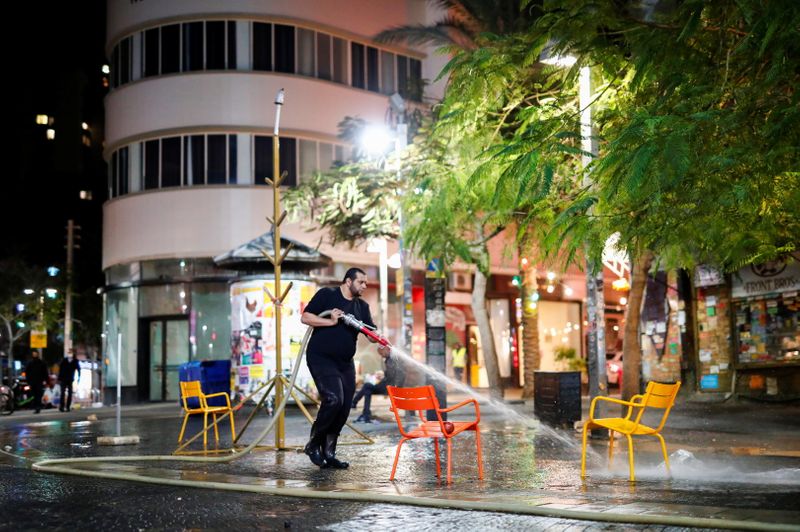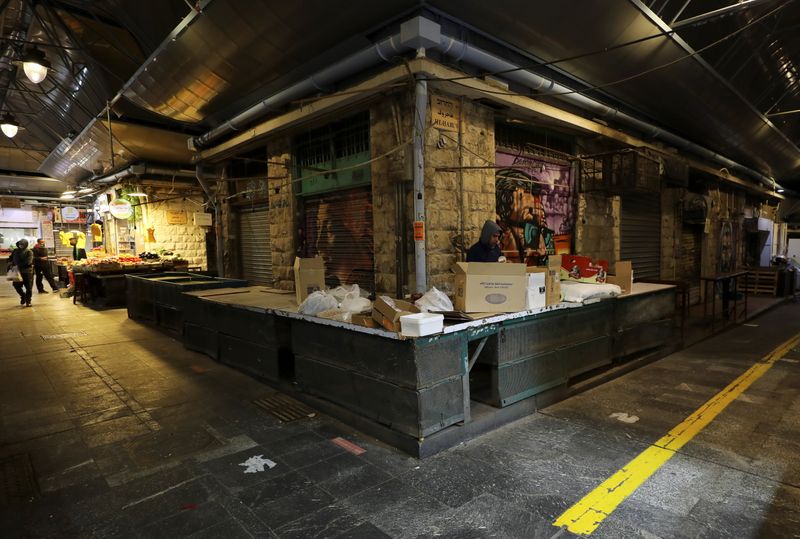By Dan Williams (NYSE:WMB)
JERUSALEM (Reuters) - Israel began what officials hope will be its last coronavirus lockdown on Sunday as they ramp up vaccinations to a pace Prime Minister Benjamin Netanyahu said may allow an emergence from the pandemic by March.
If realised, that could help Netanyahu's re-election hopes after missteps that include lifting a first lockdown with a premature declaration of victory in May, inconsistent enforcement of curbs and sluggish economic relief.
Since beginning vaccinations a week before Sunday’s European Union roll-out, Israel's centralised health system has administered 280,000 shots, the world’s fastest rate.
The opening of 24/7 vaccination stations is under consideration. Netanyahu wants the daily rate doubled to 150,000 shots by next weekend.
That could enable the vaccination of half of Israel's 9 million people by the end of January. The country has logged almost 400,000 COVID-19 cases and 3,210 deaths.
"As soon as we are done with this stage, within 30 days we can emerge from the coronavirus, open the economy and do things that no country can do," Netanyahu said in a televised address.
The conservative premier is running in a March 23 election called after his governing coalition collapsed this month.
An Israel Democracy Institute poll released on Sunday found that 40.8% of the public gave the government mostly positive ratings for its handling of the crisis' medical aspects, while 32.2% gave it mostly negative ratings. On the economic aspects, the government's ratings were 52.8% negative and 19.7% positive.
Sunday's lockdown - the country's third - will last at least three weeks and aims to tamp down contagions that are currently doubling in scale every two weeks, the Health Ministry said.

The vaccines mean "there is a very high chance that this is our final lockdown", Sharon Alroy-Preis, acting head of the ministry’s public health services division, told Army Radio.
